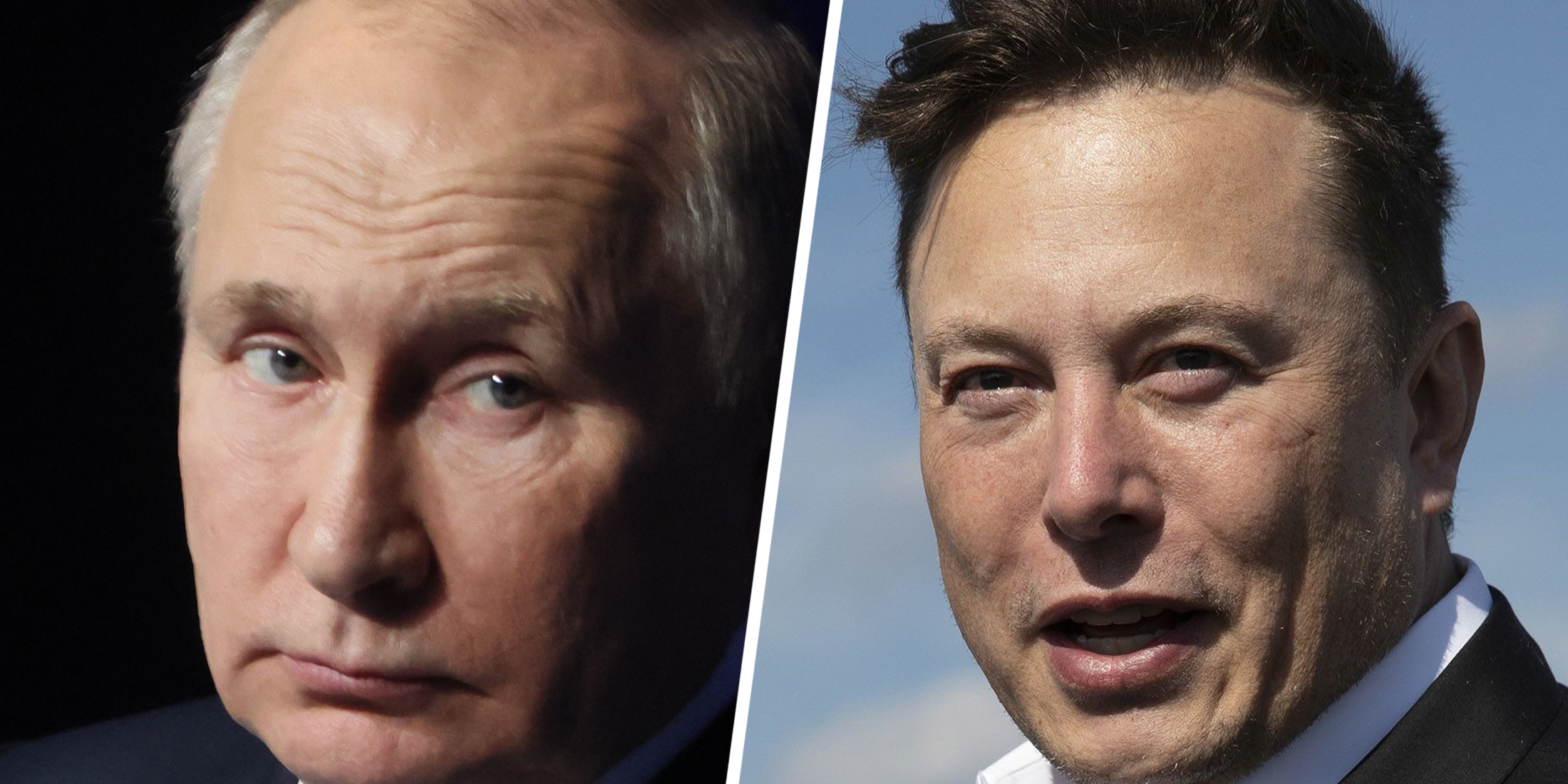One of the strange things about the failure of leadership is that it is so obvious. The reasons why it happens are obvious. The consequences are obvious, almost inevitable. And yet, as in the Greek tragedies of classical times, destiny seems to just take over. Why is this?
The two most obvious examples from 2022 couldn’t be more different in their functions, desires and aims: Elon Musk and Vladimir Putin. But in one crucial respect, they overlap rather obviously, and that is their hubris on a galactic scale. And in both cases, that would come close to being a literal description.
Musk lost around $100-billion of his wealth; gained perhaps the least appealing entry into the Guinness World Records as the person who has lost the most money in history; and, arguably worst of all, was booed when introduced on Dave Chappelle’s comedy show. He also lost his position as the world’s richest man to — wait for it — a Frenchman.
Putin has essentially lost the war in Ukraine; it’s not over yet, but the prospect of true victory is gone. He has lost his place in the world, and, I’m willing to bet, his popularity among the Russian people, which up till earlier this year has been remarkably resilient.
He has also lost, it is loosely estimated, about 70,000 of his compatriots, Russian soldiers who have died on the battlefield which some of his own generals argued he should not have entered. Nobody knows exactly how many people have died in the Ukraine invasion; certainly plenty of Ukrainian civilians from the random missile blasts, and soldiers in the trenches.
But there seems little doubt that more Russians have died in this “special military operation” than died in the Russian war in Afghanistan. And that lasted 12 years.
Another overlap between these two very different individuals, I suspect, turns on a single word: invulnerability. Leaders and leadership, as we all know, go through phases. But psychologists have recognised that there is a point where leaders consider themselves invulnerable — and that, my friend, is where the trouble (and the hubris) start.
Visit Daily Maverick’s home page for more news, analysis and investigations
There are a gazillion studies that show and try to measure this effect, but its existence goes back millennia. Greek mythology tells the story with wonderful graphic prowess in the tale of Icarus, who flew too close to the sun.
According to the story, Daedalus, a mythical inventor, created wings made of feathers and wax to escape from Crete where he and his son, Icarus, were held captive by King Minos. Icarus, however, ignored his father’s warnings and flew too close to the sun. His wings melted and he fell into the sea, where he unceremoniously died.
There is another version involving both Icarus and Oedipus, where Icarus flew too close to his mom. Ba dum.
More recently, Stanford Business School lecturer and prolific author Jim Collins has written subtly on the stages of corporate decline in the book How the Mighty Fall. Right at the top of the declining trajectory, he lists Hubris Born of Success.
The success part is, I suspect, the crucial bit. Because to become overpowered by a sense of invulnerability, you have to first succeed — often more than you expected. Both Putin and Musk, in their own way, have been enormously successful.
And how do you avoid falling into this trap? The most frequent advice given is to “stay humble”, which strikes me as the most contradictory advice ever given. If you were humble in the first place, you would almost by definition never get to be in a position where it would be necessary to be humble down the line. But what you can do, I guess, is to internalise the real reasons for your success, which may or may not include being right a lot of the time, and may be at least partly the result of the work of your colleagues.
Another piece of advice is to listen, really listen, to your longest-serving and most-trusted colleagues and friends. In fact, this last point is a good indication of when hubris is taking over, because when leaders start ousting their most reliable lieutenants, that’s a good sign things are about to go pear-shaped.
This too, I suspect, has its limits. Won’t your lieutenants be a little jealous of your success at the apex of your achievement? Will they give you the same advice at that moment that they would have given you at the start? Lieutenants also change, after all.
But generally, I think this is good advice. In some sense, we are who we choose as our associates and friends. If the festive season is about anything at all, it’s about refreshing your friendships, and that, it turns out, is much more valuable than it might seem. DM/BM
Business Maverick
How the mighty have fallen — Vladimir Putin, Elon Musk and the Icarus effect





